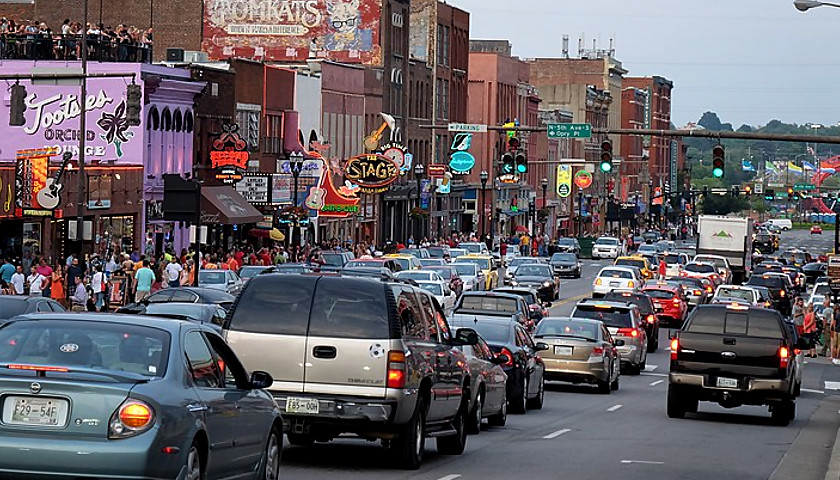According to a study by Forbes Home, those who work in Nashville face the toughest work commute in all of America.
The study analyzed 25 major U.S. cities, including New York and Los Angeles, and using eight separate metrics, determined that Nashville’s workers spend the most time trying to get to work.
The study says it takes Nashville’s more than 452,000 workers an average of 29.6 minutes to get to work in the morning, while 2.2 percent of residents do not have a car. Nashville’s walkability score, how easy it is to commute by foot, is only 29 out of 100. Its public transit score, also ranked out of 100, is a lowly 22, while its bikeability score is 30.
Meanwhile, New York City has the sixth-most-difficult commute in America, according to the study.
By comparison, it takes New Yorkers and average of 40.4 minutes to get to work in the morning, but the city’s commute is rated as easier overall than Nashville’s because more than 40 percent of New Yorkers do not have a car, and its walkability score, transit score and bikeability score are 88, 89 and 69, respectively.
Boston has the seventh most difficult commute and Los Angeles has the eighth most difficult commute.
The top five most difficult commutes are in Nashville, Charlotte (North Carolina), Jacksonville, Florida, Houston, and Washington, D.C.
Nashville has struggled for years with transportation problems, as the city has ballooned with new residents.
In 2020 the Metro Nashville Council voted to approve a $1.6 billion transportation plan, as reported by The Tennessee Star.
Metro Nashville’s Transportation Plan proposes core categories for investment that reflect our communities’ and the region’s stated priorities: Mass transit, neighborhood infrastructure (sidewalks, bikeways, greenways), a “state of good repair” for roads and bridges, traffic operations and signals, and safety/Vision Zero. Projects within the plan will be advanced via individual, opportunistic funding strategies, while more comprehensive, dedicated revenue streams—via the IMPROVE Act’s authorizing mechanism for referendums, or other available legal framework—can be pursued in a future year once America’s economy recovers from the pandemic-induced downturn. This plan offers the transportation choice and options for any post- COVID-19 scenarios that may develop.
In 2017, former Gov. Bill Haslam (R) signed the The IMPROVE Act, an acronym for Improving Manufacturing, Public Roads and Opportunities for a Vibrant Economy, into law.
That bill called for 962 projects, many of which are geared towards improving transportation and public roads in the state, is being funded to the tune of at least $10.5 billion by the Tennessee taxpayer via increased gasoline and diesel taxes.
As reported by The Star in 2019, the Tennessee Department of Transportation (TDOT) said that the timeline for the completion of the 962 projects had increased from 10 years to more than 20 years.
A tool called TDOT SPOT, where residents could keep up with the status of the projects, has been disabled.
– – –
Pete D’Abrosca is a reporter at The Tennessee Star and The Star News Network. Follow Pete on X / Twitter.
Photo “Downtown Nashville Traffic” by Cheryl Austin CC4.0.








